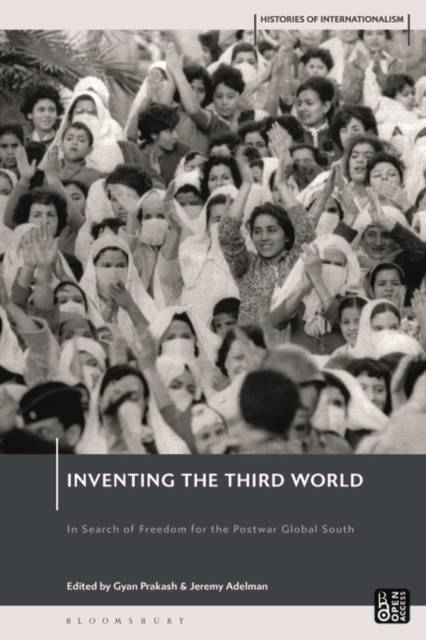
- Retrait gratuit dans votre magasin Club
- 7.000.000 titres dans notre catalogue
- Payer en toute sécurité
- Toujours un magasin près de chez vous
- Retrait gratuit dans votre magasin Club
- 7.000.000 titres dans notre catalogue
- Payer en toute sécurité
- Toujours un magasin près de chez vous
Inventing the Third World
In Search of Freedom for the Postwar Global South
67,95 €
+ 135 points
Description
This open access book explores the ways in which the global south reimagined the future world order at the end of the Second World War, and the cultural and intellectual breakthroughs that these new narratives created. The end of the Second World War and the eclipse of empires brought a wave of efforts to reimagine the future world order. When nation states emerging from colonial rule met at Bandung to chart alternative destinies and challenge global inequalities, they hoped to create a less hierarchical, more pluralistic and more distributive world. This volume considers the alternative visions put forth by the third world at the close of WWII to recover their world-changing aspirations as well as its cultural and intellectual breakthroughs.
Demonstrating how the invention of the third world sought to create new institutions of solidarity, new expressions and alternative narratives to the imperial ones that they had inherited, this book reveals how writers, artists, musicians and photographers created networks to circulate and exchange these ideas. Exploring these ideas put forth from various regions of the global south, the chapters trace their search for new meanings of freedom, self-determination and the promise of development. Out of this moment came efforts in the south to create new histories of global relations, icons and genres, and placed the promises of decolonization and struggles for social and racial justice at the centre of global history.
Showing how efforts to remake the world intersected with and altered the trajectories of the global Cold War, Inventing the Third World discusses how this conflict existed outside of the traditional east-west framework and offers an insight into a radically different 'global cultural cold war'. It shows that the Cold War era was marked by attempts to bring about a different world order that would achieve global racial, social justice and a different kind of peace.
The ebook editions of this book are available open access under a CC BY-NC-ND 4.0 licence on bloomsburycollections.com. Open Access was funded by Princeton University, USA.
Demonstrating how the invention of the third world sought to create new institutions of solidarity, new expressions and alternative narratives to the imperial ones that they had inherited, this book reveals how writers, artists, musicians and photographers created networks to circulate and exchange these ideas. Exploring these ideas put forth from various regions of the global south, the chapters trace their search for new meanings of freedom, self-determination and the promise of development. Out of this moment came efforts in the south to create new histories of global relations, icons and genres, and placed the promises of decolonization and struggles for social and racial justice at the centre of global history.
Showing how efforts to remake the world intersected with and altered the trajectories of the global Cold War, Inventing the Third World discusses how this conflict existed outside of the traditional east-west framework and offers an insight into a radically different 'global cultural cold war'. It shows that the Cold War era was marked by attempts to bring about a different world order that would achieve global racial, social justice and a different kind of peace.
The ebook editions of this book are available open access under a CC BY-NC-ND 4.0 licence on bloomsburycollections.com. Open Access was funded by Princeton University, USA.
Spécifications
Parties prenantes
- Editeur:
Contenu
- Nombre de pages :
- 296
- Langue:
- Anglais
- Collection :
Caractéristiques
- EAN:
- 9781350268180
- Date de parution :
- 30-05-24
- Format:
- Livre broché
- Format numérique:
- Trade paperback (VS)
- Dimensions :
- 156 mm x 234 mm
- Poids :
- 408 g






